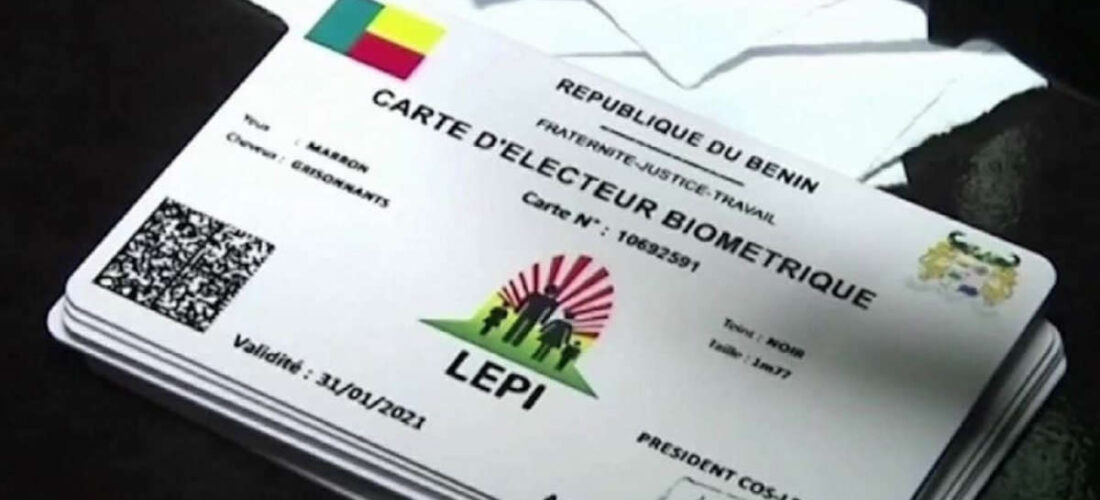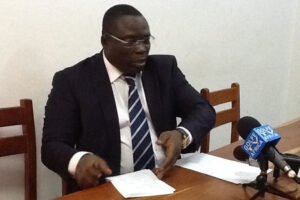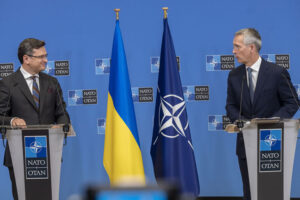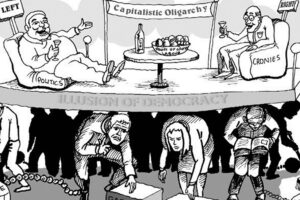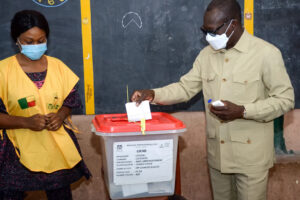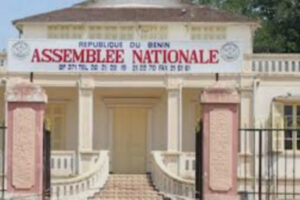Is a row about to break over the computerization of voters’ registry?
LEA HOUNKPE WHO IS THE COORDINATOR OF THE PERMANENT ADMINISTRATIVE SECRETARIAT (SAP) OF THE NATIONAL ELECTORAL AND INDEPENDENT COMMISSION (CENA), IN A PRESS CONFERENCE AT HER OFFICE ON MONDAY, DECEMBER 09, 2009, ADDRESSED THE ISSUE RELATING TO THE COMPUTERIZATION OF THE ELECTORAL SYSTEM AND REFERRING TO THE ELECTORAL ACT CLAIMED THE INSTITUTION SHE HEADS IS THE ONE QUALIFIED TO CARRY OUT THE TASK.
Beninese electoral system has been unreliable. It has been the subject of controversies. All the latest presidential, legislative or local elections held in Benin ended up in acrimonious disputes. The March 2008 local elections have been one of the most controversial ever organized in Benin. As the 2011 presidential contest is about two (02) years away from now and considering the previous post electoral wrangling, both local and international observers have been growing apprehensive and the entire political arena agrees upon the need for the computerization of voters’ registration in order to prevent a potential electoral crisis.
But so far the willingness of the Government to carry it out is yet to materialize.
Since KEREKOU era, the issue has been in discussion though its implementation has always been delayed and hampered because of partisan politics as each side of the political arena strives to take control of the process. Both the Government and the opposition are eager to have a tight hold on it.
In 2004 the attempt that was made by the Government of President Mathieu KEREKOU to carry out the computerization of voters’ registration, failed. When the former Minister, Alain ADIHOU who was in charge of the project addressed the parliamentarians on the issue, the National Assembly and the Permanent Administrative Secretariat questioned its prerogative to do the job. At the time, there was also the fear that the Government might be contriving a deceitful plan to allow Mathieu KEREKOU to have a third term in office.
In the end, the Constitutional Court ruling on a request introduced to it on the subject declared the move unconstitutional on 25th of January 2005. The decision of the Court was motivated by the fact that the Government was not qualified according to the Constitution to go ahead with the project without an appropriate electoral act.
Boni YAYI, since he is in office, has committed himself to make effective the computerization of the electoral system. In the process, he asked the European Commission and the United Nations Development Program to perform an assessment on the feasibleness of the computerization of the voters’ registry before the 2011 presidential elections.
The report on the assessment made by the UE and the UNDP was handed over to the Government on Wednesday, December 11, 2008. In the report, it is suggested that if the computerized voters’ registry had been to be available for the 2011 presidential race, its carrying out would have started on the 1st of December 2008.
During the best wishes ceremony for the 2009 New Year celebration at the Palais du Marina the President Boni YAYI while addressing the heads of the State Institutions and the members of the Civil Society, restated his commitment to implement the project. The new deadline that has been set for its starting is March 2009.
Nevertheless, even with this new deadline, the analysis in the media, the contentious and contradictory statements made by some parliamentarians and Civil Society militants and the claims of the Head of the SAP/CENA during her press conference raised doubt about the implementation of the computerization project before March 2011.
The Coordinator of SAP/CENA referred to the Act no. 2000-18 of January 03, 2001 in a first time and then to the article 46 of the Act no. 2007-25 of November 23, 2007 which lays down general rules on elections in the Republic of Benin, on the SAP/CENA’s Coordinator. She maintained that the SAP’s functions are, among others, the conservation of the CENA’s administrative memory, the recovery, the storage and the maintenance of the election records, the preparation of the preliminary draft budget for the elections.
She went on to add that “a part from the role of record manager assigned to the SAP, the former Minister has insisted on ‘computerization and/or annual update of the permanent voters’ registry by professional bodies whose competence is proven and on the need for this to be done by a competitive bidding’ which is under the same Act relating to the prerogatives of the institution whose head she is.”
The current Minister in charge of the relationships between the institutions, Baba BODY, on his part, seems to claim the same prerogatives as the SAP/CENA which is right now under the authority of the President, the Head of State. This is actually an attribution conflict that may delay further the process of computerization of the voters’ registry.
It is as if the scenario which took place in 2004, is going once again to take place. For in a case of a dispute over which institution should conduct the project, the matter has to be reported to the Constitutional Court. The Court might take weeks or even months before coming up with a decision. The current delay is therefore going be worsen by this row which at last may make impossible the computerization of the voters’ registry for the 2011 presidential race.
Nonetheless, there might still be a way out of this deadlock. The political arena may reach a compromise to resolve the row and allow the project to start before the deadline of March if the parliamentarians can put aside their potential differences on the issue and pass swiftly a draft amendment to the electoral act.
This amendment is supposed to indicate clearly which body is qualified to perform the task. It is why a seminar took place on Wednesday, February 11, 2009 at “Palais des Congrès” in Cotonou to brief the parliamentarians on the issue.
All the major actors of the political arena attended the seminar. Some of them even reacted to give their impression about the project:
The Parliamentarian Adrien HOUNGBEDJI, Chairman of PRD
“… We must move towards the computerized voters’ registry which will allow us to have transparent and fair elections. So we welcome the initiative to give substance to this project which was born under the 3rd legislature of the National Assembly. However, I think that this is not a race or a race against time. It is about setting up a necessary institution that can help meet the challenge of establishing a reliable voters’ registry on time and according to the standards. But the goal is not to necessarily implement the computerization of voters’ registry for 2011. It is good that all political actors are involved in the discussions and that its instrumentation by a part of the ruling class is avoided. Our presence here, all political tendencies together is the proof of the interest that everyone bears to the reliability of this voters’ registry…”
Bruno AMOUSSOU MP, Chairman of PSD
“I can assure you that all of us are unanimously convinced that we can not go on organizing elections the way we used to. It is time to begin a process that allows us to have a real electoral roll. Therefore, the current initiative, though late, is very relevant and I think everyone of us will strive to ensure that it can be completed before the elections of 2011. But the important thing is the body that has to be trusted with the exercise and can make credible the results. If we do it in any driving condition, it is likely that at the end, disputes will arise on both sides. So, the question of the body which will conduct the exercise is an important issue. I think there will probably be soon in the National Assembly, the first decisions that we will have to take…”
MP Antoine KOLAWOLE IDJI of MADEP
“We are already late. But it is better late than never. We are here to do it, to do it properly and help do so. We need to make a consensus that allows the computerization of the voters’ registry to consolidate democracy. You know, any kind of manipulation can be introduced in the system and that is what we do not want. The computerization of the voters’ registry which allows anyone to take hold of the voters whenever he or she wants is not a good one…”



